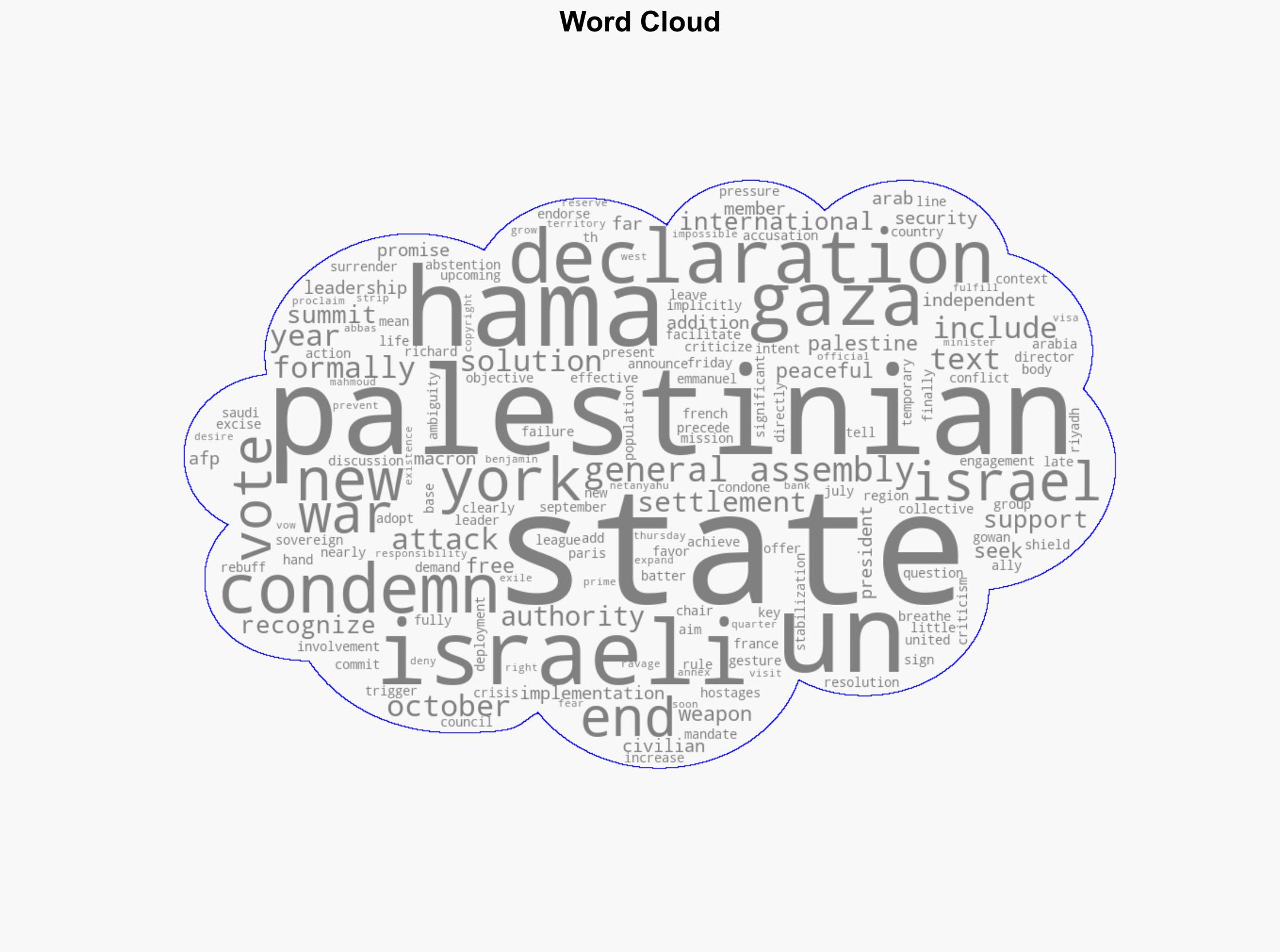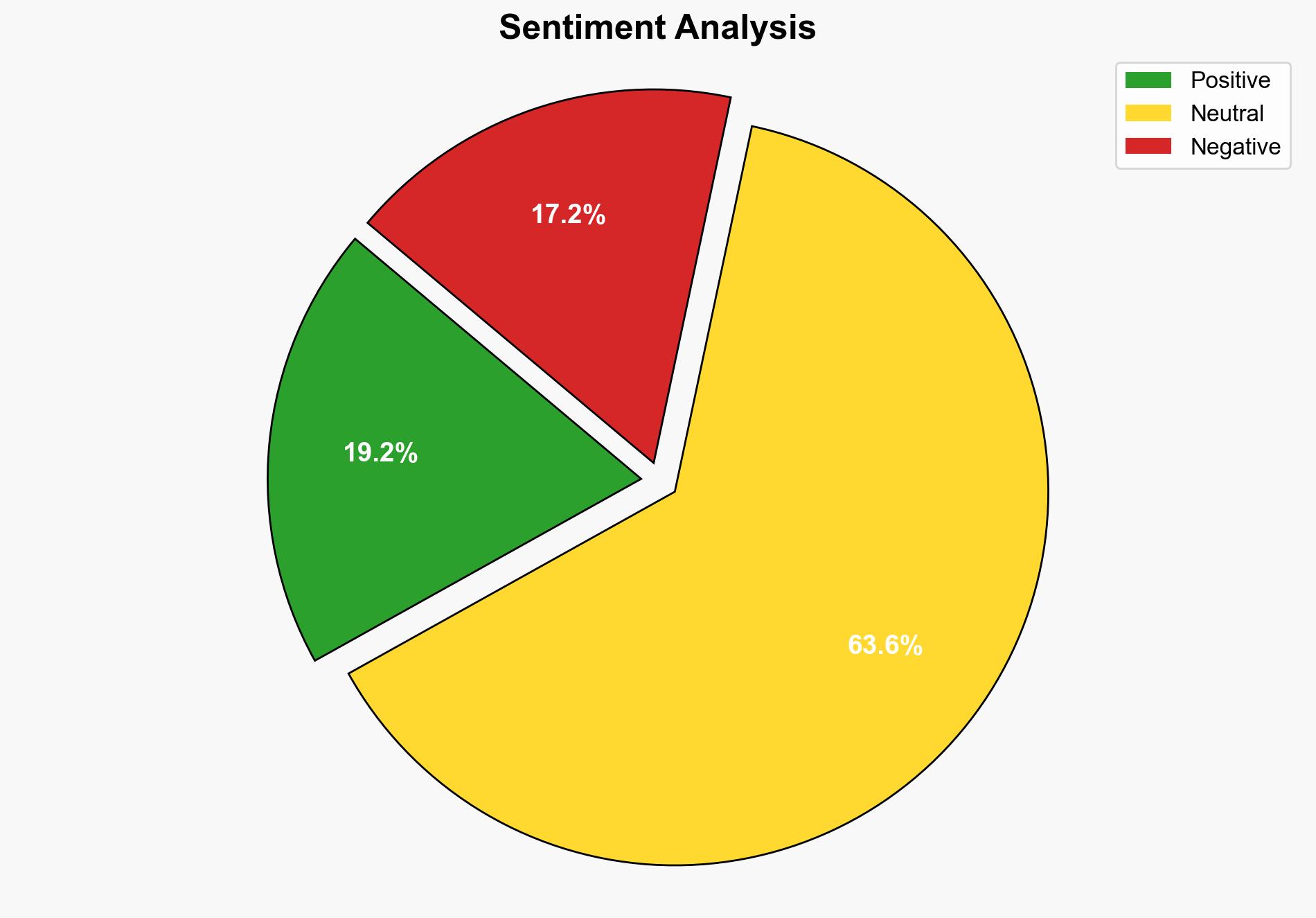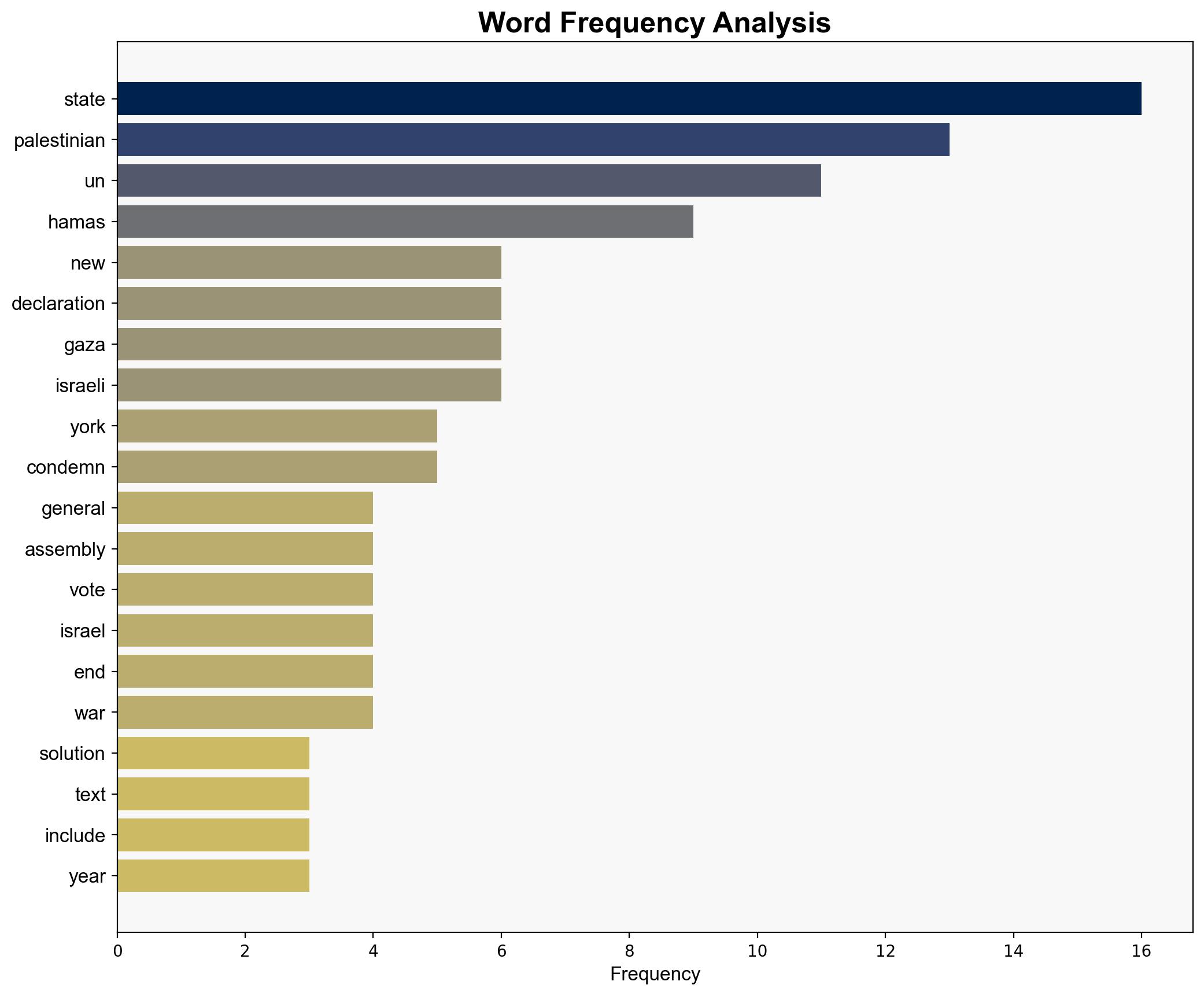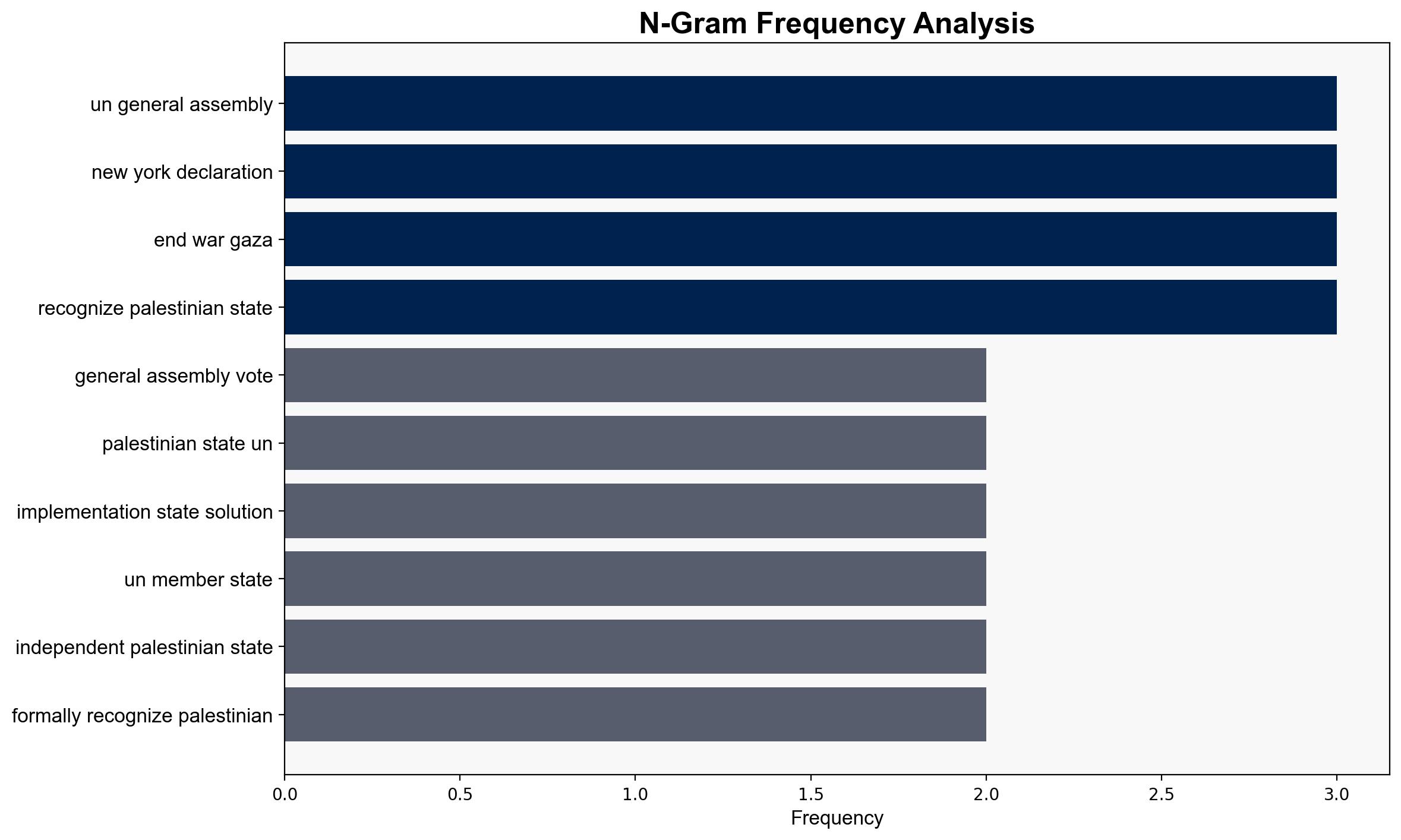UN General Assembly Votes For Hamas-free Palestinian State – International Business Times
Published on: 2025-09-12
Intelligence Report: UN General Assembly Votes For Hamas-free Palestinian State – International Business Times
1. BLUF (Bottom Line Up Front)
The UN General Assembly’s resolution for a Hamas-free Palestinian state aims to renew efforts towards a two-state solution but faces significant geopolitical challenges. The most supported hypothesis is that the resolution seeks to increase international pressure on Israel and Hamas to de-escalate the conflict, with a moderate confidence level. Recommended action includes diplomatic engagement to support a peaceful resolution and monitoring potential escalations.
2. Competing Hypotheses
1. **Hypothesis A:** The resolution is a strategic move to isolate Hamas and strengthen the Palestinian Authority, aiming to facilitate a peaceful two-state solution.
2. **Hypothesis B:** The resolution primarily serves as a diplomatic gesture to appease international calls for action without substantial impact on the ground, given the lack of enforcement mechanisms and existing geopolitical tensions.
Using ACH 2.0, Hypothesis A is better supported due to the explicit condemnation of Hamas and calls for international stabilization efforts, indicating a strategic intent to shift power dynamics in favor of the Palestinian Authority.
3. Key Assumptions and Red Flags
– **Assumptions:** The resolution assumes that international condemnation and diplomatic pressure can effectively isolate Hamas and empower the Palestinian Authority. It also presumes that member states will actively support the resolution’s implementation.
– **Red Flags:** The lack of a clear enforcement mechanism and the abstention of key allies like the United States suggest potential challenges in achieving tangible outcomes. The ambiguity in the resolution’s language may lead to varied interpretations and hinder unified action.
4. Implications and Strategic Risks
– **Geopolitical Risks:** The resolution could exacerbate tensions between Israel and Palestine if perceived as biased. It may also strain relations with countries that abstained or opposed the resolution.
– **Potential Escalations:** Failure to implement the resolution could lead to increased violence in Gaza and the West Bank, undermining regional stability.
– **Economic and Psychological Dimensions:** Prolonged conflict may impact regional economies and contribute to humanitarian crises, affecting global perceptions and policy decisions.
5. Recommendations and Outlook
- Engage in multilateral diplomacy to support the resolution’s objectives and encourage regional cooperation.
- Monitor developments for signs of escalation and adjust strategies accordingly.
- Scenario Projections:
- **Best Case:** Successful diplomatic efforts lead to a ceasefire and renewed peace talks.
- **Worst Case:** Increased violence and geopolitical tensions escalate into broader regional conflict.
- **Most Likely:** Continued diplomatic stalemate with sporadic violence and limited progress towards a two-state solution.
6. Key Individuals and Entities
– Emmanuel Macron
– Benjamin Netanyahu
– Mahmoud Abbas
– Richard Gowan
7. Thematic Tags
national security threats, geopolitical strategy, Middle East peace process, international diplomacy




